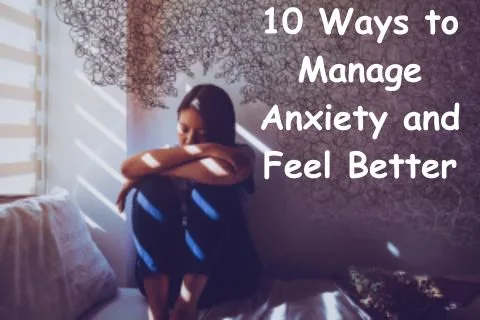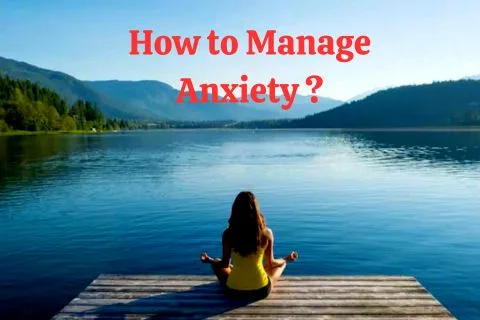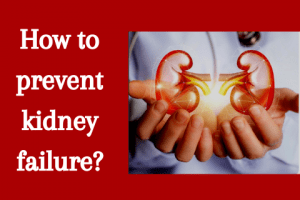

If you struggle with anxiety, there are short-term strategies to help control symptoms and long-term techniques to deal with frequent issues.
What is anxiety, and how do you manage it?
Anxiety is basically a natural body response to stress. It is the feeling of fear that comes to mind. Many researchers believe that anxiety occurs for many reasons. These reasons can vary from genetics to environmental conditions to brain conditions.
Symptoms of anxiety
The symptoms of anxiety include:
- Increased heartbeat
- Increased breathing
- Restlessness
It’s important to keep in mind that anxiety appears in different ways. For some, it may affect their stomach, while others may experience panic attacks and nightmares.
Ways to Manage Anxiety and Feel better.
It can be very difficult to deal with anxiety, but if you have certain effective strategies, you can easily cope with anxiety conditions, and it helps you feel better. In this article, we’ll explore ten practical ways to manage anxiety and improve your overall well-being. These strategies are designed to be simple and easy to understand, so you can implement them into your daily life with ease.
Here are some natural ways to manage anxiety.
1. Stay Active and Healthy
Staying active doesn’t mean only improving our physical health. To stay active, you should consider both physical and mental peace and health. Regular exercise can provide you with both physical and mental peace.
In a study of 2013, it was revealed that people with anxiety disorders who were doing regular exercise were in much better condition as compared to those who were not doing regular exercise.
According to researchers, it is believed that anxiety can be effectively reduced by engaging in regular physical activity. You must take part in relaxing activities like yoga, dancing, jogging, or walking. Because Endorphins, which are naturally uplifting substances, are released during exercise. And Exercise diverts your attention from those fears that are making you anxious about something.
American Psychological Association (APA), describes that regular exercise increases our willpower and enhances our concentration, which can help reduce anxiety.
2. Practice Deep Breathing
Deep breathing helps us manage anxiety very quickly. A powerful practice that can instantly relax your mind is deep breathing. Take long, deep breaths if you are feeling nervous.
For a total of five minutes, try to breathe in for four counts and out for four counts. Your heart rate will slow because of steady breathing, which should make you feel less anxious.
Another common breathing pattern for anxiety treatment is the 4-7-8 method.
3. Maintain a Balanced Diet
The food that you consume can affect how you feel. Eat a healthy, balanced diet that is high in whole grains, lean proteins, fruits, and vegetables. Limit your intake of caffeine and sugar because they might make anxiety symptoms worse.
Some people may experience mood changes because of low blood sugar, dehydration, or chemicals included in processed foods such as artificial flavorings, artificial colorings, and preservatives. A high-sugar diet may affect mood as well.
Check your eating habits if your anxiety gets worse after eating. Drink plenty of water, steer clear of processed foods, and consume a balanced diet high in lean proteins, fruits, and vegetables.
4. Get Enough Sleep to Reduce Anxiety
Sleep deprivation can make anxiety worse. Develop a relaxing bedtime routine and establish a consistent sleep pattern. Spend 7-9 hours each night getting a good night’s sleep.
Sleeping is very important for good mental health, and it is proved by much research. A report in 2012 revealed that almost one third of adults get less sleep than 6 to 7 hours a night. It is recommended that an adult get at least 7 to 8 hours of sleep every day.
5. Use Meditation And Mindfulness Exercises
Being mindful means staying in the present moment without making judgments. Practice techniques like meditation, deep breathing, or simply paying attention to your environment. You can control your worried thoughts by doing this.
Mediation helps reduce stress and anxiety. It can lead to a sense of peace of mind and enhance our ability to bear harsh thoughts and situations peacefully.
30 minutes daily mediation acts as an anti-depressant and helps to manage anxiety.
6. Limit Your Media Consumption
Constantly hearing bad news can make you more anxious. Set restrictions on how much media you consume and go for uplifting content instead. Reduce your screen time. Try to use your mobile phones in a moderate manner and try to watch good things that may not affect your brain.
7. Keep in Touch
Isolation can make anxiety worse. Spend time with those who provide you with a sense of support, such as family and friends. Tell them how you’re feeling; it can make you feel better.
8. Reduce caffeine intake.
Caffeine is not your friend if you suffer from persistent anxiety. If you’re uncomfortable, caffeine may make you restless and angry, neither of which are helpful.
Caffeine may contribute to or exacerbate anxiety disorders, according to research. For those who suffer from panic disorder, it could potentially trigger panic attacks. Caffeine withdrawal can considerably reduce anxiety symptoms in some people.
Due to its capacity to change brain chemistry, coffee and anxiety are frequently associated, much like alcohol and alcoholism.
A study in 2008 revealed that caffeine boosts alertness by inhibiting the brain chemical adenosine, which causes fatigue, and simultaneously inducing the production of adrenalin.
Considering everything, most people can safely consume a modest amount of caffeine.
9. Consider Aromatherapy
Humans have utilized Aromatherapy as a holistic therapeutic method for thousands of years. The technique promotes the health and wellbeing of the mind, body, and spirit by utilizing natural plant extracts and essential oils. Its objective is to improve mental and emotional well-being.
The natural plant extracts’ essential oils can be immediately inhaled, added to a warm bath, or diffused. Using aromatherapy is advised for:
- Help you relax.
- Helps in sleeping.
- Improve mood.
- Lower blood pressure and cardiac rate.
Some essential oils that are thought to reduce anxiety include:
- Bergamot
- Lavender
- Citrus Sage
- Grapefruit
10. Ask for specialist Help
If your anxiety becomes unbearable, don’t be afraid to ask a mental health expert for assistance. Effective assistance for managing anxiety can be obtained through therapy, counselling, or medication.
You can navigate your anxiety with the support of therapists and counsellors, and in some circumstances, medication may be suggested to help you feel more balanced.
Conclusion
Anxiety management is a gradual process that calls for perseverance and commitment. By adopting these ten strategies into your routine, you can make major progress towards reducing your anxiety and improving your general quality of life. Keep in mind that everyone’s journey is different; be kind to yourself and don’t be afraid to ask for help if you need it. Taking control of your mental health is a significant step towards living a life that is more peaceful and satisfying.








